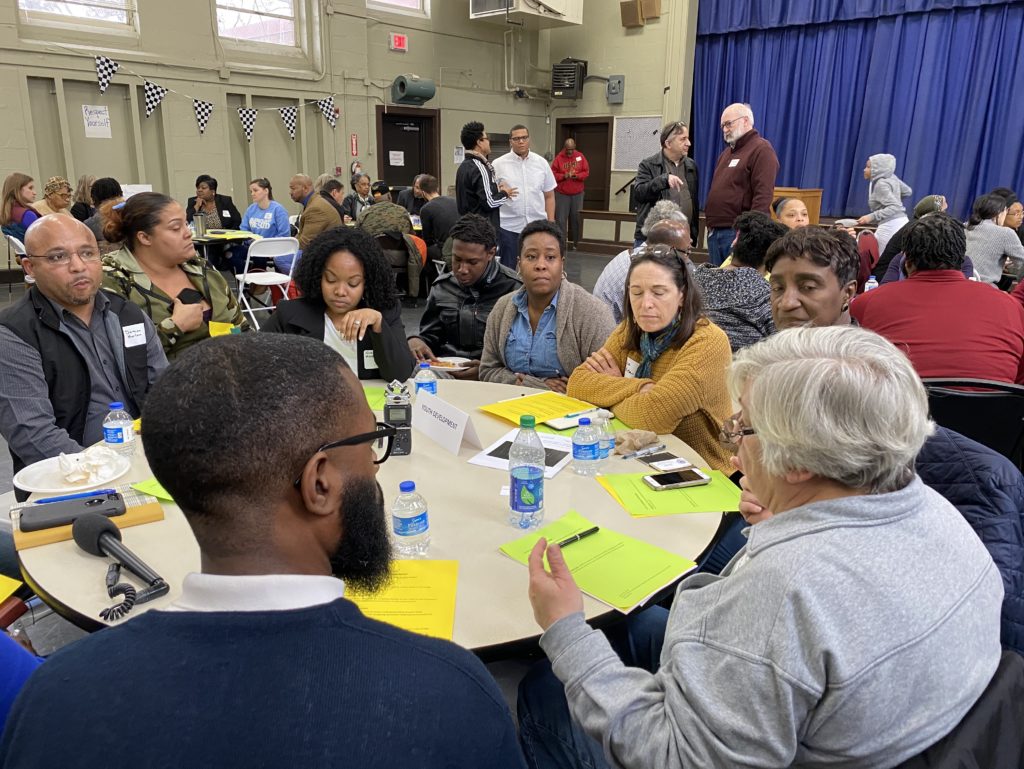
A newly formed Metro committee is seeking to repair what residents describe as decades of neglect in North Nashville.
The committee comes in response to a 2018 Brookings Institution study that found Nashville’s 37208 ZIP code has the highest incarceration rate in the country. One in seven people born in the North Nashville neighborhood between 1980 and 1986 were incarcerated during their lifetime.
Damon Harlan, who grew up in the area, says many of his friends were incarcerated in the 1990s and are struggling to integrate back into a society that neglected them as youth.
“Just based on conversation, they’ve had a hard time adapting or being accepted in society,” Harlan says. “We’re looking at jobs, per se, and that’s one of the main focuses that we have discussed.”
Councilman Brandon Taylor, who helped facilitate a community listening session Saturday, says he hopes to work with business owners to create jobs for formerly incarcerated residents.
“The goal for us is to provide the spaces to have the conversations and to have those partnerships engaged,” he says.
Locals say the ZIP code is also suffering from failing schools, and that the lack of community resources in North Nashville creates a repetitive cycle of high incarceration rates.
“They’re not getting a fair chance,” says local resident Lita Salinas. “Our children aren’t being taught to read before they leave elementary school.”
Residents from the area say mass incarceration has been an issue in North Nashville for years, and that it wasn’t until gentrification arose that bringing change to the community became a topic of discussion. Germantown, a prosperous neighborhood that has experienced lots of investment in recent years, is included in the 37208 ZIP code.
“There has been an issue for a long time. I don’t know why they’re just now wanting to address it,” Salinas says. “We’ve lost way too many kids, and way too many men in our families.”
Taylor says the Metro committee will present a report highlighting the community’s concerns to the vice mayor’s office next week.
“With them knowing our truth, there are a lot of communities that feel like they’ve been forgotten about,” Salinas says. “In order for Nashville as a whole to be on the rise, and for everyone to do great, we do need to address what nobody really wants to talk about.”

